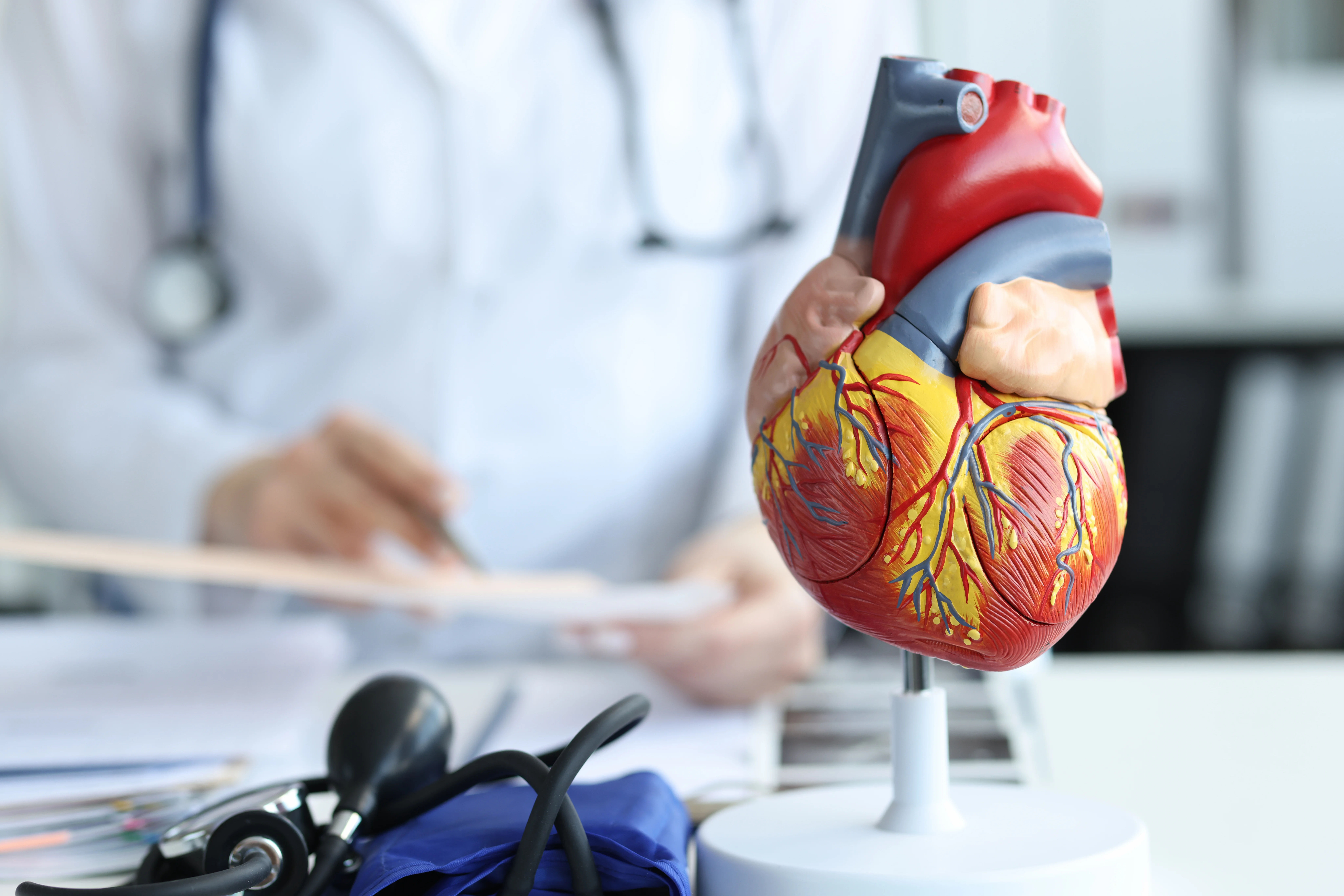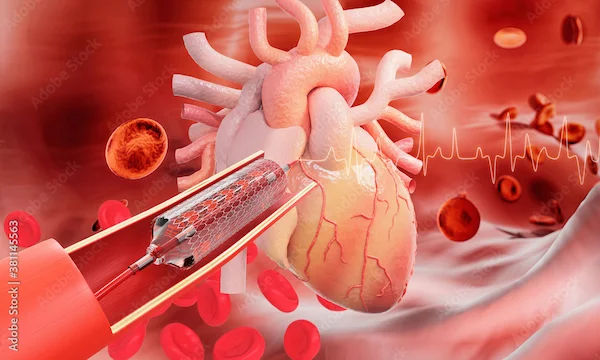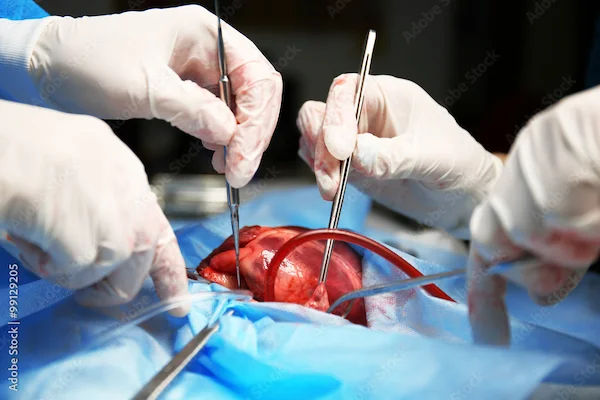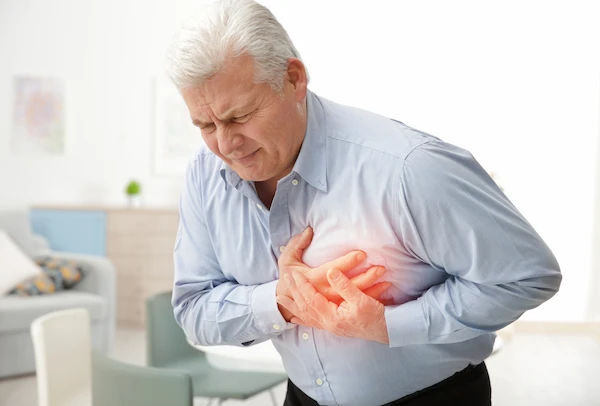Irregular Heartbeat After Angioplasty
Irregular heartbeat after angioplasty can be concerning. Discover potential causes, symptoms to watch for, and when to consult your doctor for proper care.

Written by
Last updated on 7th Jul, 2025

Introduction
If you or a loved one has recently undergone angioplasty, you might be concerned about experiencing an irregular heartbeat afterward. While this can be unsettling, it’s important to understand why it happens and how to manage it effectively.
What is an Irregular Heartbeat After Angioplasty?
An irregular heartbeat, also known as arrhythmia, occurs when the heart beats too fast, too slow, or in an uneven rhythm. After angioplasty - a procedure to open blocked heart arteries - some patients may experience temporary or occasional irregular heartbeats.
While most cases are harmless, some may require medical attention. Knowing the causes, symptoms, and management strategies can help you stay informed and take the right steps toward recovery.
Why Does It Happen?
Several factors can contribute to an irregular heartbeat after angioplasty:
1. Heart Muscle Stress: The procedure can temporarily affect the heart’s electrical system, leading to irregular rhythms.
2. Underlying Heart Disease: If you had heart disease before angioplasty, your heart may still be adjusting.
3. Medication Side Effects: Some post-angioplasty medications (like blood thinners or beta-blockers) can influence heart rhythm.
4. Scar Tissue Formation: Sometimes, minor scar tissue from the stent placement can interfere with electrical signals.
5. Electrolyte Imbalance: Low potassium or magnesium levels can trigger arrhythmias.
Consult Top Cardiologists To Know The Exact Reason
Common Symptoms to Watch For
Not everyone with an irregular heartbeat experiences noticeable symptoms. However, some signs include:
Palpitations (feeling like your heart is fluttering or skipping beats)
Dizziness or lightheadedness
Shortness of breath
Chest discomfort
Fatigue or weakness
If you experience fainting, severe chest pain, or prolonged irregular beats, seek medical help immediately, as these could indicate a more serious issue.
How to Manage Irregular Heartbeat After Angioplasty?
Experiencing an irregular heartbeat after angioplasty can be concerning, but with proper management and medical guidance, it's often treatable. Here’s what you can do to keep it under control:
1. Follow Your Doctor’s Advice
Take prescribed medications like beta-blockers or anti-arrhythmic drugs as directed.
Attend follow-up appointments to monitor your heart health.
2. Adopt a Heart-Healthy Lifestyle
Eat a Balanced Diet: Focus on fruits, vegetables, whole grains, lean proteins, and healthy fats. Reduce salt, sugar, and processed foods.
Stay Hydrated: Dehydration can worsen arrhythmias.
Limit Caffeine & Alcohol: These can trigger irregular heartbeats in some people.
3. Exercise Wisely
Engage in moderate exercise (like walking or swimming) as recommended by your doctor.
Avoid sudden intense workouts that strain the heart.
4. Manage Stress
Practice deep breathing, meditation, or yoga to reduce anxiety.
Get adequate sleep for up to 7-8 hours per night.
5. Monitor Your Heart Rate
Use a smartwatch or home blood pressure monitor to track irregularities.
Keep a log of symptoms and share them with your doctor.
When to Seek Medical Help?
While occasional irregular heartbeats may not be alarming, consult your doctor if you notice:
Frequent or worsening palpitations
Persistent dizziness or fainting
Severe chest pain or shortness of breath
A sudden, very fast or slow heartbeat
Your doctor may recommend:
An ECG (Electrocardiogram) to check heart rhythm.
Holter Monitoring (24-hour heart tracking).
Blood tests to check electrolyte levels.
Conclusion
Experiencing an irregular heartbeat after angioplasty can be concerning, but most cases improve with time and proper care. By following medical advice, maintaining a healthy lifestyle, and staying alert to symptoms, you can support your heart’s recovery.
If you have concerns or need further evaluation, consider booking a consultation with a cardiologist through Apollo 24|7 for expert guidance and peace of mind.
Consult Top Cardiologists
Consult Top Cardiologists To Know The Exact Reason

Dr. Tripti Deb
Cardiologist
40 Years • MBBS, MD, DM, FACC, FESC
Hyderabad
Apollo Hospitals Jubilee Hills, Hyderabad

Dr. Anand Ravi
General Physician
2 Years • MBBS
Bengaluru
PRESTIGE SHANTHINIKETAN - SOCIETY CLINIC, Bengaluru

Dr. Sumanjita Bora
Cardiologist
9 Years • MBBS, PGDCC
Bengaluru
Apollo Clinic, Sarjapur Road, Bengaluru

Dr. Zulkarnain
General Physician
2 Years • MBBS, PGDM, FFM
Bengaluru
PRESTIGE SHANTHINIKETAN - SOCIETY CLINIC, Bengaluru

Dr. Amit. A. Bharadiya
Cardiologist
12 Years • MBBS, MD General Medicine, DNB Cardiology, FSCAI
Maharashtra
Surabhi Hospital, Maharashtra, Maharashtra
(50+ Patients)
Consult Top Cardiologists

Dr. Tripti Deb
Cardiologist
40 Years • MBBS, MD, DM, FACC, FESC
Hyderabad
Apollo Hospitals Jubilee Hills, Hyderabad

Dr. Anand Ravi
General Physician
2 Years • MBBS
Bengaluru
PRESTIGE SHANTHINIKETAN - SOCIETY CLINIC, Bengaluru

Dr. Sumanjita Bora
Cardiologist
9 Years • MBBS, PGDCC
Bengaluru
Apollo Clinic, Sarjapur Road, Bengaluru

Dr. Zulkarnain
General Physician
2 Years • MBBS, PGDM, FFM
Bengaluru
PRESTIGE SHANTHINIKETAN - SOCIETY CLINIC, Bengaluru

Dr. Amit. A. Bharadiya
Cardiologist
12 Years • MBBS, MD General Medicine, DNB Cardiology, FSCAI
Maharashtra
Surabhi Hospital, Maharashtra, Maharashtra
(50+ Patients)




